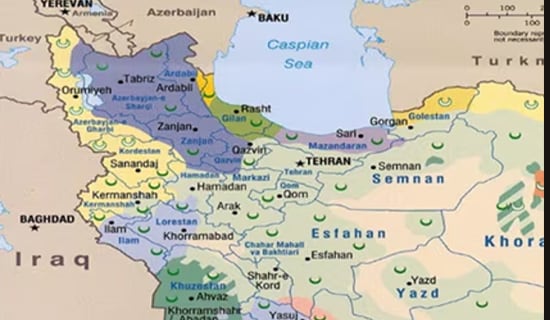I. Regional Economic Issues
Military Spending in the Middle East-Highest in the World
According to the International Monetary Fund[1], military spending in the Middle East remains the highest in the world both in terms of its relations to GDP and to overall government spending:
| 1995 | 1999 | 2001 | 1995 | 1999 | 2001 | |
| (Percent of GDP) | (Percent of total government expenditure) | |||||
| All countries | 2.6 | 2.5 | 2.4 | 11.7 | 11.3 | 11.5 |
| Advanced economies | 2.6 | 2.5 | 2.5 | 11.9 | 11.7 | 12.1 |
| Developing countries | 2.2 | 2.2 | 2.1 | 10.9 | 9.5 | 8.9 |
| Middle East | 6.1 | 5.8 | 6.3 | 19.7 | 17.5 | 17.0 |
Conference of Arab Economists in Beirut
The conference of Arab economists, held in Beirut in mid-July, was dedicated to foreign investments and the growth requirements of Arab countries. The conference paid attention to the paucity of foreign direct investment in the Arab world.
As a background, total foreign investments worldwide have reached $1.3 trillion and the number of branches of multinational companies has reached 800,000 but with very few branches in the Middle East because of persistent conflict between liberalization policies and fears of globalization. While a number of countries have instituted legal procedures to encourage foreign direct investments, such as the repatriation of profits and tax holidays, foreign direct investments have declined because of the unsuitable economic, social, political and cultural environment for foreign investors.
Syria was the sole voice at the conference which appeared to cling to socialist dogmas. A Syrian spokesman at the conference said that "privatization and economic liberalization have led to disastrous consequences and that the advanced industrial societies have made progress thanks to state intervention."
The Arab Monetary Fund estimates Arab capital expatriated abroad in the years 1975-2000 between a low of $212 billion and a high of $318 billion. The capital will be repatriated only if the investment environment improves.[2]
Arab Water Security in Danger
Citing a government study in Abu Dhabi, the Saudi daily Okaz warns that the problem of water shortage in Arab countries is on the rise because of frequent occurrences of drought. As a result, the share of the Arab world of renewable drinking water is only 0.5% of the world total. As a result, the available water per capita has declined from 3126 cu. meters in 1950 to 981 cu. meters in 2000-- the lowest in the world.
The study warns that the Arab world has entered the third millennium with a population of 290 million, most of which lives below the water poverty line which was determined by the United Nations to be at 1000 cu. meters per capita.
The study devotes a chapter to non-Arab countries which covet Arab water. It mentions Israel as coveting the Jordan and Yarmouk rivers, Turkey which has been damming the waters of the Euphrates and Tigris rivers, and [unnamed] foreign countries coveting the Nile River. Iran is also mentioned as coveting Arab water. [3]
Swiss Bank Opens an Islamic Branch in Bahrain
UBS, the largest Swiss bank, will open an "Islamic" branch in Bahrain next September to help manage the capitals of wealthy Muslims who prefer Islamic banking practices (e.g., no interest on savings but rather a form of profit sharing.). [4]
II. Country Economic News
Socialist Imprints on Egyptian Economy
The Egyptian revolution, 50 years old, has left its imprint on the economy characterized by a blotted public sector, relaxed implementation of the privatization program and a labor law which renders the dismissal of workers a difficult undertaking. An economist residing in Cairo said that officials leave things to move at their own pace, dominated by stifling state bureaucracy created after the revolution which built on a concept that a service in the public sector was the preferred choice of Egyptians.
As an example, there are 52,000 customs inspectors compared with 20,000 in the largest economy in the world, the American economy. [5]
U.S. Aid to Egypt--$615 million in FY2003
USAID Administrator Willard Pearson has confirmed that the U.S. administration will seek congressional approval for an economic package worth $615 million for FY2003, and that there was no intention of reducing the economic aid amount. The U.S. has already made three major payments in FY2002 totaling $500 million.
Asked about the impact of the Egyptian boycott of American goods, Mr. Pearson said the boycott has had little impact. In 2001, American exports to Egypt reached $879 million while imports from Egypt reached $3.8 billion. [6]
For Fourth Time U.S. Postpones Free Trade Agreement with Egypt
Egyptian officials have complained that the U.S. government was not serious about entering into serious negotiations with Egypt to establish a free trade agreement. Previously-scheduled meetings were canceled four times. The U.S. is not satisfied with Egypt's treatment of intellectual rights and the slow pace of structural reforms. [7]
Islamic Development Bank Makes Loan to Egypt
The Islamic Development Bank, headquartered in Jeddah, has signed 10 agreements with Egypt providing loans for $270 million to finance petroleum, agricultural, navigational, and medical projects. The loans are to be repaid in 20 years, including 5 years of grace. [18]
Iraqi Oil Does Not Go Through Syria
Responding to a question about the export of 150,000 b/d of Iraqi oil to Syria, Iraqi Minister of Trade Muhammad Mahdi Saleh replied: "There is but a weak border trading with Syria, including the smuggling of small quantities of oil." [9]
Iraq Seeks Free Trade Zones with Bahrain and Saudi Arabia
Elsewhere, the minister indicated his country's desire to conclude a free trade agreement with Bahrain and Saudi Arabia similar to the ones his country has concluded with Syria, Egypt, Tunisia, Lebanon, Oman, and U.A.E. Other agreements are pending with Libya, Algeria, Qatar and Sudan. In the absence of diplomatic relations between Iraq and Saudi Arabia, the minister obliquely referred to the discussions between the two countries as being conducted "through trade channels." The minister did not give the reason for the unsigned free trade agreement with Jordan. [10]
Iraq has used the free trade agreements with other Arab countries to offer them concessions in an attempt to break its diplomatic isolation.
Iraqi Oil Exports Continue to Decline
For a third week running, Iraqi oil exports have declined to a low of 1.14 million b/d which represents only about a half of Iraq's capacity of 2.2 million b/d. Iraq attributes the decline to the ex post pricing system imposed by the United Nations according to which the price of oil is determined after it has been loaded on tankers. Iraq argues that the system introduces an element of uncertainty for the buyers and discourages them from buying it. [11] The reason for instituting this restrictive system is to prevent Iraq from collecting illegal levies from buyers. Faced with buyers' reluctance to pay a special levy or fee of $0.25-$0.50 on each barrel of oil Iraq decided to drop the surcharge. [12] We suspect another reason for the decline of Iraqi oil exports. The decline may be related to Saddam Hussein's unilateral decision last May to suspend oil exports for a month "in solidarity with the Palestinian people." Oil markets, like all markets, don't appreciate surprises and uncertainties and prefer sources of reliable supplies.
Iraq Guarantees Regular Supply of Oil to Jordan
Iraq and Jordan signed a new "oil protocol" in Baghdad on July 23 guaranteeing the supply of Iraqi oil to Jordan for the coming year. The supply will comprise 5 million tons, half of which is given as a grant (referred to as a gift from President Saddam Hussein). Trucks carry Iraqi oil to the Jordanian refinery in Zarqa. [13]
The export of Iraqi oil to Jordan is exempted by the United Nations from its sanctions policy on Iraq.
Syrian Economist Comments on Syrian Planned Economic Reforms
In an unusual article in the Syrian government daily Tishreen, Dr. Fayyad Zambu'a takes issue with some of the key components of the Syrian government's economic reform plan. The reform plan calls for addressing the decline in oil production, doubling the income from tourism between 2000 and 2005 through expanded investments in the sector, increasing GNP by 3% in 2002-2003 and 4% in 2004-2006 and reducing unemployment to 5.9%. [14]
Dr. Zambu'a offers the following comments:
Unemployment: Optimistic estimates put the unemployment rate at over 19%. Labor force is growing at about 5% annually. To reduce employment rates to 5.9% requires a growth in the GNP of 6%, not 3 or 4% suggested by the government, or at least twice the rate of population growth, estimated at 3% annually.
Small-Scale Investments. He doubts that small and individual businesses could help solve the unemployment problem in Syria. At best, he said, this approach will create a shop-keeper mentality that causes the waste of resources, the inability to benefit from technological innovations and the economies of scale, and the destruction of the environment. He draws attention to city streets dotted with little licensed and unlicensed shops which destroy the beauty of the cities and undermine the drive for tourism. [15]
Saudi Warning against Egyptian Companies with Israeli Connections
The Saudi Minister of Commerce Osama Al-Faqih warned importers in the kingdom to be cautious in dealing with 15 Egyptian firms which have trade links with Israel. The minister warned that the Saudi importers and Egyptian companies risked being banned and blacklisted by the kingdom.
Al-Faqih also appealed to his Jordanian counterpart, Salah Bashir, during a meeting of the Saudi-Jordanian Cooperation Committee in Riyadh to help curb the entry of Israeli products into Saudi Arabia. [16] For his part, the Jordanian minister said that "the Jordanian laws specifically require a certificate of origin and that smuggling across the Jordanian borders is not possible either legally or logically…" [17]
In the past 10 months, Saudi Arabia has blacklisted 200 Arab and foreign companies for exporting to it $150 million of Israeli goods. The companies include 72 Jordanian, 70 Cypriot, 23 Egyptian and 11 Turkish. None of these companies will be allowed to trade with Saudi Arabia again. [18]
Israeli economists are quoted saying that tens of millions of dollars are exported annually to Arab countries through third parties. Daniel Bloch, a spokesman for the Israeli Export Institute said that Israel's name does not appear on many products or, in the case of communications equipment, Israel's name "is invisible to the consumer." [19]
Jordan: Economic Base is Solid
The Jordanian minister of economy, Muhammad Hulaiqa, said that, despite the Intifada and the risk of attack on Iraq, the Jordanian economy remains solid. He denied rumors about the devaluation of the Jordanian dinar. He said economic reforms in Jordan were on-going although there was a need to expedite privatization and to integrate the country into the World Trade Organization.
The minister identified a training program for 10,000 Jordanians (males and females) with salary to enable them to find employment in the armed forces and in the other government sectors.[20]
Khamenei Calls for Intensifying War against Economic Crimes
Iran's supreme religious leader Ayatollah Ali Khamenei called on the leaders of the country, including President Khatemi, to consider the fighting of economic crimes one of their highest priorities. [21]
Morocco to Spend $4 Billion on Tourism Projects
Morocco will invite international tenders to build 4 tourist centers on the shores of the Atlantic Ocean and the Mediterranean Sea at a cost of $4 billion. Morocco seeks to increase its hotel capacity by 90,000 rooms to be able to absorb an estimated 10 million tourists by 2010.
Tourist data show the number of utilized hotel rooms has declined by 6% this year compared with last while hotel employment has declined from 52% to 47.6 % of the working force during the same period. [22]
Foreigners Withdraw Money from Israel
The Bank of Israel (central bank) reported withdrawal by foreigners of $152 million in June, following an earlier withdrawal of $149 million in May.
Foreign direct investments in Israel have fluctuated, reaching a record of $11.2 billion in 2000. Because of the Intifada investments trended downward to$1.06 billion in the first six months of 2002 compared with $2.82 billion for the same period a year earlier. [23]
PNA: Minister of Finance Seeks to Put House in Order
It would appear that the new minister of finance in the Palestinian National Authority, Salaam Fayyadh, a former staff member of the International Monetary Fund, is seeking to bring order and accountability to the Palestinian finances. The first step was to take over the customs revenues and other levies [not specified] from Harbi Al-Sarsoor, one of the leaders of the Fatah Movement. The next step will be to take over other resources under the control of Muhammad Rashid (a.k.a. Khaled Salaam), the economic adviser to chairman Arafat. Most importantly, the minister has unified the exchange rate of the Shekel (Israeli legal tender used in the Palestinian territory) "to stop the manipulations previously exercised by the PNA" [for example, salaries for civil servants were designated in dollars but the exchange rate used to pay the salaries in Shekel was approximately 60% of the official exchange rate. The differential between what the civil servants were entitled to and what they were paid was pocketed by senior Palestinian officials.]. [24]
PNA: 5-7 Years Necessary to Restore Economic Health
Maher Al-Masri, the minister of economy and trade in the Palestinian National Authority, told Agence France Presse that the Palestinian economy will need 5-7 years to restore its health. He warned that if the current situation persists, more violence with the Israelis should be expected. He said the economy was performing at 25% of its capacity and that the level of unemployment and poverty has reached 65%.
He said the private sector was exhausted. Currently, there are in Gaza City no more than 18 marginal industries employing 750 workers.
Attempts to establish economic relations with Arab neighbors are frustrated by Israeli occupation. [25]
III. The Economics of Feminism
Frozen Assets of Female Savers in Saudi Arabia
The Saudi daily Al-Jazirah points out that a considerable ratio of saving accounts in Saudi banks belong to women. Most of these liquid assets are, in practice, frozen because women do not have an opportunity to explore alternative methods of investments. In Saudi Arabia, the paper says, a woman must have a male "legal agent" or guardian before obtaining a license to conduct business. The legal agent must act on her behalf to do all the paperwork required for any investment activity. Most women find it difficult to find a trustworthy agent to act on their behalf and, as a result, resort to the most conservative form of investments, saving money in the bank [which is not necessarily a bad idea except that Saudi banks are enjoined by the Shari'a (Islamic law) from paying interest on savings.] [26]
Saudi Arabia Confiscates 8000 Cloaks for Failing to Meet Islamic Requirements
The office in charge of the prevention of trade fraud, with the help of the Saudi moral police which is responsible for "the promotion of virtue and the prevention of vice," has confiscated 8000 cloaks made for women, 'Abaya, because they tend to show female curvature. The mufti of Saudi Arabia has issued a fatwa [religious edict] specifying the properties of a proper cloak that meets the law of the Shari'a. Such 'abaya should:
- be of thick material that will not show any part of the body and won't stick to it
- cover the entire body and not show its contour
- open only in front but the sleeves should be narrow
- have no decorations or writings to attract attention
- not look like a dress worn by female infidels and by men
- be placed at the top of the head.
Violators will be prosecuted.
[1] IMFSurvey, Vol. 31 No. 11 (June 10, 2002), p. 178.
[4] Al-Quds Al-Arabi, July 31, 2002.
[5] Al-Quds Al-Arabi, July 22, 2002.
[8] Al-Sharq Al-Awsat, July 15, 2002.
[9] Al-Sharq Al-Awsat, July 4, 2002.
[10] Al-Hayat, July 26, 2002, and Babil, August 1, 2002.
[11] Al-Quds Al-Arabi, August 1, 2002.
[12] Babil, July 10, Al-Quds Al-Arabi, July 18 and July 22, 2002.
[16] Al-Jazirah, July 13, 2002.
[18] Al-Sharq Al-Awsat, August 5, 2002.
[19] Al-Quds Al-Arabi, August 3, 2002.
[20] Al-Quds Al-Arabi, July 31, 2002.
[24] Al-Quds Al-Arabi, August 3, 2002. A comprehensive interview with Fayyadh may be read in Al-Hayat, August 2, 2002.
[25] Al-Quds Al-Arabi, July 31, 2002.
[26] Al-Jazirah (Saudi Arabia), June 24, 2002.
[27] Al-Jazirah (Saudi Arabia), June 18, 2002.
*Dr. Nimrod Raphaeli is Senior Analyst of MEMRI's Middle East Economic Studies Program.








